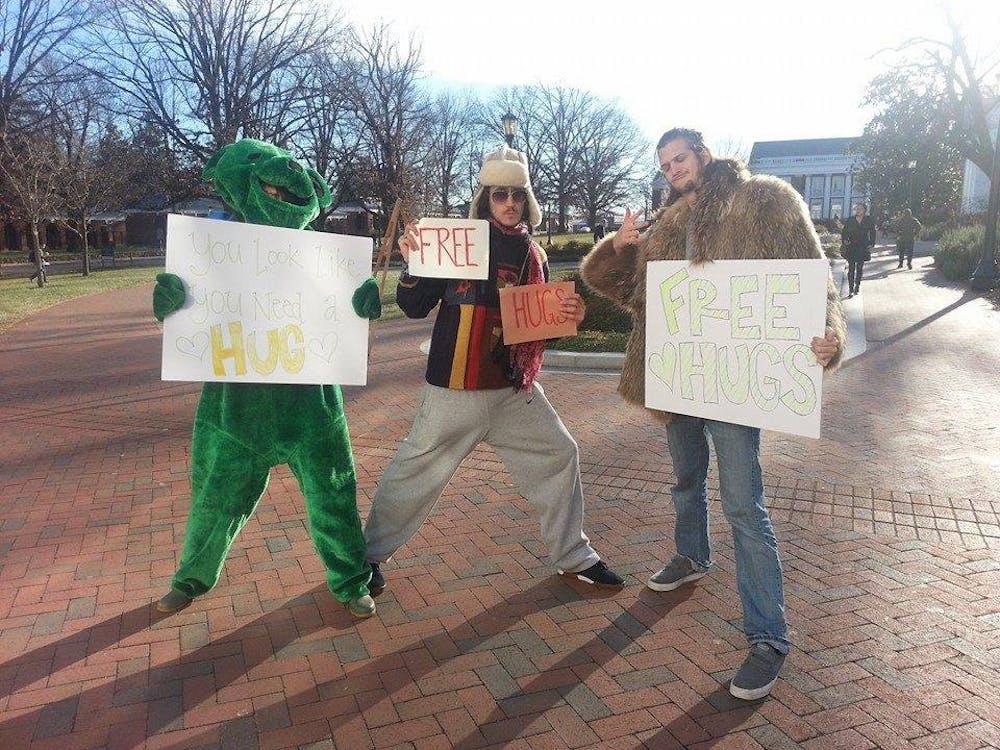Students in the Society for Awakening Souls do everything from read tarot cards to perform the Chinese meditation and martial arts practice chi gung when they come together for their weekly meetings. The group, founded in the fall by fourth-year Commerce Student Nick Lasky, aims to serve as a spiritual outlet and resource on Grounds.
After spending the summer in California, Lasky said he wanted to bring his newfound spirituality and spiritual conversations back to the University.
“I just decided I was going to do it,” he said. “[SAS is] really a place for people to come and learn more about spirituality. The mission is just to [create] a little spiritual community for all those who are curious.”
The group assembles every Wednesday evening, beginning their meeting with a guided meditation Lasky leads. After the session, there is an open discussion when people can raise thoughts about the meditation, share experiences they have had in the past week, or discuss anything about their personal spiritual journeys.
“It’s cool how it has become a community really fast,” fourth-year College student Navona Gallegos said. “A lot of us didn’t know each other before last semester and [we] are really good friends now, so that’s exciting.”
Last semester, the group had meetings focused on a variety of topics, such as astrology, and occasionally hosted guest speakers to give lectures or share different techniques, including John Oliver, the owner of the Aquarian Bookshop downtown.
“Everyone in SAS is really welcoming and accepting so if someone is feeling sort of shy about it, or maybe they feel like whatever path [he or she] is on is sort of a private thing and doesn’t really want to share it in a group, that’s not necessary,” Gallegos said. “They can still come and hang out and engage in whatever level they want to.”
The group’s members come from a variety of different backgrounds. Lasky reads tarot cards — an outlet for a psychic ability that he says all people have to a certain degree.
“They say that everyone’s psychic, so it’s just the intuition you get about other people,” Lasky said. “When you meet someone, before you even talk to them, you are like, ‘Oh, I don’t really like that person, I am getting something weird from that person.’ That is just your psychic ability. You are picking up something about them energetically.”
Gallegos practices the body-centered form of Chinese energy work chi gung. “[Chi gung practices] also affect other energies in your body, or at least that’s what I think about them,” he said. “It’s just a way of using body movement as a vehicle for changing your own energy-conscious balance.”
SAS does not have any particular religious affiliation, Lasky said, as religion and spirituality are separate realms.
Meditation and spiritual practices have long had a place in University life — the Medical School’s Mindfulness Center incorporates meditative practices into medical care to help improve patient healing and well-being — but have experienced a boom in the past several years.
The University founded the Contemplative Sciences Center in 2012 to further integrate mindfulness into education across Grounds, such as the one on Buddhist Meditation being offered in the Religious Studies department this semester, he said.
“In the past there had been a split between reading about [meditative practice] and learning about it as an academic discipline without actually experiencing it,” said Medical Prof. John Schorling, director of the center. “And now we are actually bringing the experiential component into the [classroom].”







